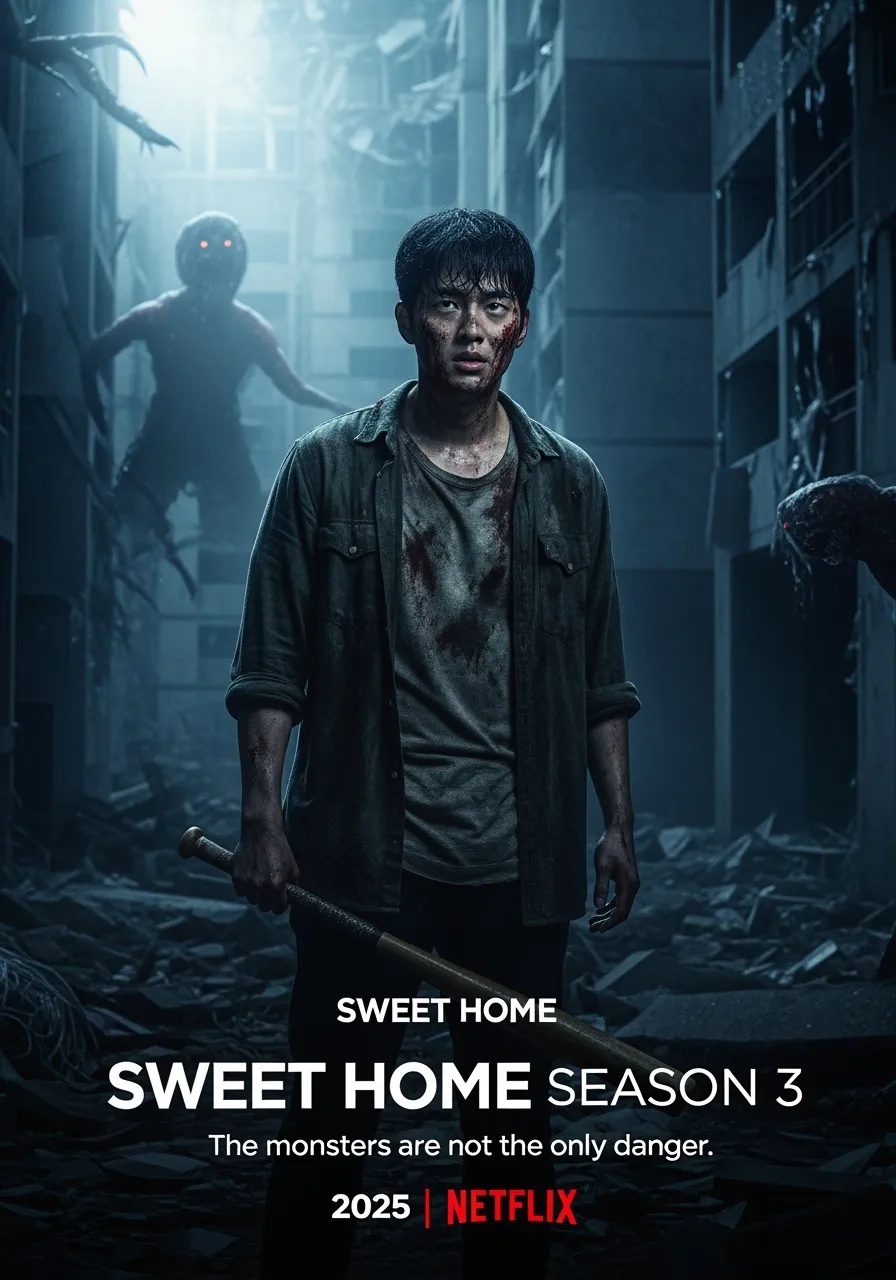Directed by Severin Fiala and Veronika Franz, the Austrian duo behind Goodnight Mommy, The Lodge (2019) is a slow-burning psychological horror that trades jump scares for a claustrophobic atmosphere, emotional trauma, and a chilling ambiguity that lingers long after the credits roll. Premiering at Sundance and eventually released to broader audiences by Neon, the film is as much a portrait of grief and guilt as it is a traditional horror tale.
🎬 Plot Summary: Isolation and Inheritance of Pain
The story centers on Grace (Riley Keough), a woman with a deeply troubled past and the sole survivor of a religious suicide cult. As she tries to rebuild her life, she is reluctantly invited by her boyfriend Richard (Richard Armitage) to spend Christmas at a remote lodge with his two children, Aidan (Jaeden Martell) and Mia (Lia McHugh), shortly after the suicide of their mother (Alicia Silverstone, in a brief but devastating role).
What begins as a tense family bonding experiment quickly unravels. A blizzard traps them in the isolated lodge. Strange occurrences blur the line between reality and delusion. Items disappear. Tensions rise. Grace’s past begins to claw its way into the present. And the children’s behavior becomes increasingly unsettling. The lodge itself becomes a kind of psychological purgatory, where trauma festers in silence.
🎭 Performances: Riley Keough’s Terrifying Vulnerability
Riley Keough gives a deeply unnerving performance as Grace. Her portrayal is not outwardly monstrous—there’s no cliché unraveling into overt madness—but instead a subtle descent into paranoia and psychological collapse. Keough imbues Grace with layers of fragility, trauma, and suppressed rage, making her both sympathetic and frightening.
Jaeden Martell and Lia McHugh are equally compelling as the grieving children whose distrust of Grace spirals into manipulation. Their performances are eerie without being exaggerated, and their silence is as terrifying as their words.

🏔️ Direction & Aesthetic: Cold, Controlled, and Cruel
Fiala and Franz craft an atmosphere that is aesthetic perfection for fans of elevated horror. From the dollhouse-like precision of the set design (mirroring the miniature home motif seen in Hereditary) to the frigid, grey palette and wide, symmetrical shots, the visual style enhances the emotional desolation. There is no warmth in this film—only sterile interiors, howling wind, and psychological suffocation.
The sound design is minimal yet oppressive. The silence between characters speaks louder than any score, broken only by the occasional ominous drone or distant thump, leaving the viewer constantly uneasy.

🧠 Themes: Religion, Guilt, and Psychological Decay
At its core, The Lodge explores the long-term damage of religious fanaticism, emotional neglect, and unresolved grief. It poses disturbing questions:
-
Can trauma be inherited?
-
Is redemption possible when your mind is your prison?
-
And are children truly innocent in the face of grief?
The narrative plays like a twisted morality play, where every character becomes both victim and villain. There are no easy answers—only consequences.

🧊 Final Verdict: A Slow, Suffocating Descent into Dread
The Lodge is not for everyone. It’s deliberately paced, emotionally cold, and offers little catharsis. But for fans of films like The Witch, Hereditary, or The Babadook, this is a must-watch—a horror film that works not by screaming at you, but by whispering, freezing, and quietly breaking you down.
Rating: ★★★★☆ (4/5)
Emotionally brutal, aesthetically flawless, and deeply disturbing. The Lodge proves that sometimes the scariest place is your own mind.
-1754319905-q80.webp)
-1747716802-q80.webp)
-1740282288-q80.webp)

